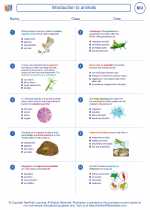Folate: An Essential Vitamin for Health
Folate, also known as vitamin B9, is a water-soluble B vitamin that plays a crucial role in various physiological processes in the human body. It is essential for the synthesis and repair of DNA, the production of red blood cells, and the metabolism of amino acids.
Sources of Folate
Folate is naturally found in a variety of foods, including leafy green vegetables (such as spinach and kale), legumes (such as lentils and chickpeas), fruits (such as oranges and bananas), and fortified grain products (such as cereals and bread).
Functions of Folate
1. DNA Synthesis and Repair: Folate is essential for the synthesis and repair of DNA, the genetic material in our cells. This is particularly important during periods of rapid cell division and growth, such as during pregnancy and adolescence.
2. Red Blood Cell Production: Folate is necessary for the production of red blood cells, which carry oxygen to all parts of the body. A deficiency in folate can lead to a type of anemia called megaloblastic anemia, characterized by large, immature red blood cells.
3. Amino Acid Metabolism: Folate is involved in the metabolism of amino acids, the building blocks of proteins. It helps convert homocysteine, an amino acid, into methionine, which is essential for normal growth and development.
Importance of Folate in Pregnancy
Folate plays a critical role in preventing neural tube defects in developing fetuses. Adequate folate intake before and during pregnancy is essential for the proper development of the baby's brain and spinal cord. This is why pregnant women are often advised to take folic acid supplements to ensure they meet their folate requirements.
Folate Deficiency and Supplementation
A deficiency in folate can lead to a range of health problems, including megaloblastic anemia, weakness, fatigue, and poor growth. It can also increase the risk of neural tube defects in newborns.
Supplementation with folic acid is recommended for women of childbearing age, pregnant women, and individuals with conditions that affect folate absorption, such as celiac disease or inflammatory bowel disease.
Study Guide
When studying folate, it's important to understand its sources, functions, and the consequences of deficiency. Here are some key points to focus on:
- Identify the natural food sources of folate and the importance of fortified grain products in folate intake.
- Explain the role of folate in DNA synthesis and repair, red blood cell production, and amino acid metabolism.
- Discuss the significance of folate in preventing neural tube defects during pregnancy.
- Describe the potential health problems associated with folate deficiency and the importance of supplementation in at-risk populations.
Understanding the role of folate in overall health and its specific importance during pregnancy can help students grasp the significance of this essential vitamin in human biology.
.◂Biology Worksheets and Study Guides High School. Introduction to animals

 Worksheet/Answer key
Worksheet/Answer key
 Worksheet/Answer key
Worksheet/Answer key
 Worksheet/Answer key
Worksheet/Answer key
 Vocabulary/Answer key
Vocabulary/Answer key
 Vocabulary/Answer key
Vocabulary/Answer key
 Vocabulary/Answer key
Vocabulary/Answer key
